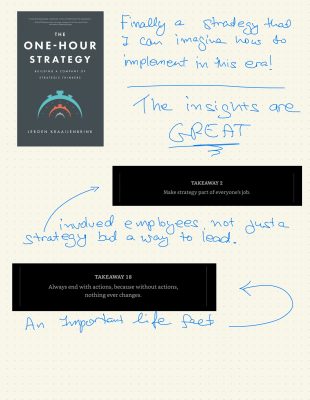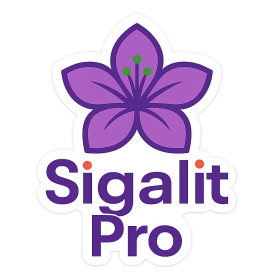I was happy to be among the first to read Jeroen Kraaijenbrink’s book, The One-Hour Strategy. Its name is promising, and to not keep you in tension, I can tell you that he holds the promise.
We live in an era where the rate of change is tremendous, information is flooding us, and our attention span is short. This era also affects our ability as professionals to deal with professional literature and certainly involves the entire conduct of organizations. After reading the first few pages, you discover that it is a professional book that is fun to read, and that doesn’t happen often. While deepening the reading, we realize that the strategic concept presented here is relevant to our world and its directions.
The book is written as a simple plot about Martin, the new employee in the marketing department of “Water & Flows,” a company that manufactures industrial pumps. Martin’s first days in the company reveal innovative management and strategy concepts in a company that is considered low-tech. The way the employees Martin met with described the strategy made me want to work for this imaginary company. Although it is fictional, it can be the workplace of each of us.
The “One-Hour Strategy” concept becomes clear while reading the book. It is the answer to the irrelevance of strategic methods applied in organizations. It is also relevant to organizations operating in a constantly changing world, which is our reality today.
What is unique about the method?
It involves all employees in the organization on an ongoing basis. No more strategy meetings once a year, where everyone sits and reads emails. Strategy is a continuing process and not an event. It deals well with the gap between strategy and execution.
Engaged employees are the order of the day
I want to dwell on an essential point of employee involvement. I am a big believer in the participation of employees at all levels in what happens in the organization.
I got so attached to “One-Hour Strategy” because it involves everyone at its core.
Employee engagement has benefits that are more important now than ever. Organizations must be in a position where they are constantly incrementally updating their way of doing things.
A first advantage of employee involvement is that the more involved people are, the more tolerant and open they are to change. The resistance level decreases as they are part of the process that causes changes.
Another advantage is that engaged employees help the organization think in the right direction and adopt relevant changes. Employees must not feel they “do not count” and are only responsible for implementing their precise job requirements. Every company should remember what happened to Kodak ignoring the digital camera invented by its employee and remember that in today’s world, the risk of “Kodak 2” is much greater.
Implementation and internalization of a strategy while reading
The book is structured in a literary way, while the author puts thought into how the method is internalized.
At the end of each chapter, some questions connect the method and the place where the reader works. It makes the reader devote a few minutes of thought at the end of each chapter when the connection to the reality of each of us helps understanding and internalization.
Through the insights Martin records for himself during the meetings, the perception sharpens for us readers. Returning to the list of insights at the book’s end helps everything settle in your head much better.
In addition, during the description of the strategy by the people from the organization with whom Martin met, they showed him templates for implementing the strategy and even templates for managing meetings.

More than just a strategy
Beyond the excellent connection between strategy and the actual functioning of the organization, the book also has recommendations that are relevant to managers in general.
The recommendations appear between the lines, and you should pay attention to them.
Is everything perfect?
The book also refers to the weak points of the method, how to overcome them, and when it is suitable and when it is not.
In conclusion
The One-Hour Strategy is a must-book if you are in a management or strategy position.
I’m sure managers and strategists will recognize things they did out of a gut feeling to try to deal with strategic theories that are difficult to implement. The “One-Hour Strategy” method overcomes the shortcomings of the old approaches.
It is a contemporary approach that is easy to adopt, and the way it is structured and presented allows anyone to adjust to the reality of their organization.

